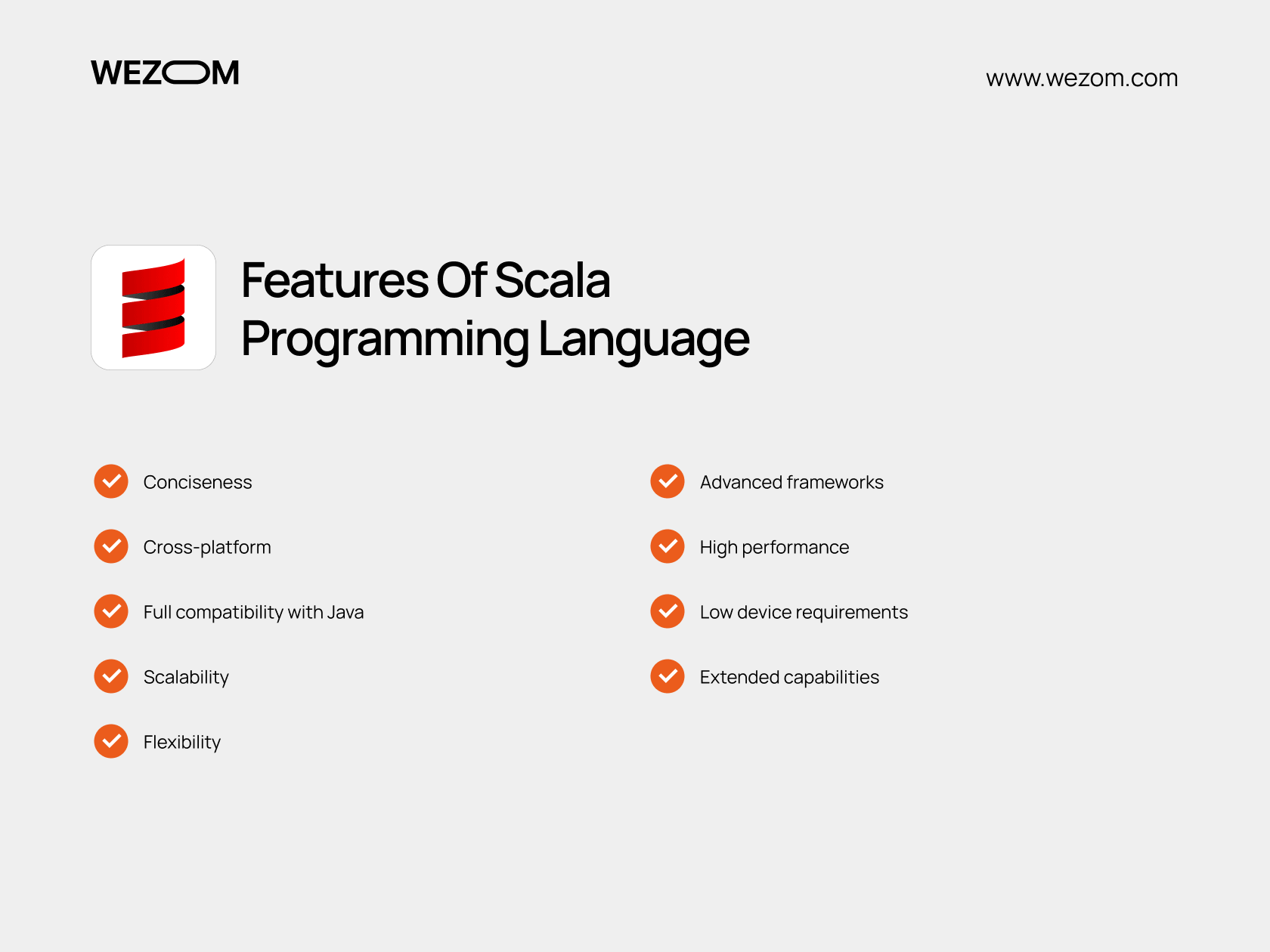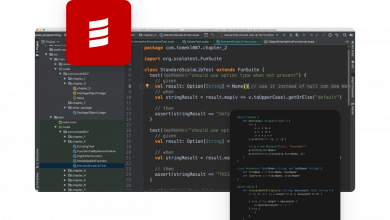Are you going to start the development process to bring your business idea to life? Then, coming up with the right language may be a tough nut to crack for you. Indeed, this choice is critical since modern software solutions are very demanding in terms of speed of data processing, business logic implementation, and ability to interact with other systems.
In recent years, developers have increasingly suggested choosing Scala to cover these needs, but is this an effective decision, or perhaps it makes sense to stick with the undisputed leader – Java? Below, we propose to understand this dilemma in detail.
What Is Scala?
So, what is Scala? In general, it is a statically typed language created as a more concise alternative to Java (in fact, Scala is based on Java and is, therefore, backward compatible). It is a general-purpose language, which means that it has no specific scope and can be applied to solving almost any task.
At the same time, thanks to the characteristics of this programming language, it is often presented as an essential part of the technology stack for web applications and, specifically, can be used in the development of high-load news portals, social networks, educational platforms, and other multi-user projects. And of course, it is worth saying that Scala goes beyond object-oriented programming, also allowing for a functional one.
The only drawback of this language is its complexity. This is why finding a good Scala developer can be a difficult task.

Features Of Scala Programming Language
Scala has a number of advantages when it comes to software development. Here they are:
- Conciseness. The shorter syntax compared to Java is convenient. Thus, Scala coding takes up less time, and the obtained results turn out to be easier to read and edit. At the same time, Java is well known for the “heaviness” of code structures, and the presence of a large number of bugs in such code is a typical situation.
- Cross-platform. Scala allows developers to create cross-platform solutions that are compatible with any OS. Therefore, they do not have to worry about compatibility with the software environment and hardware.
- Full compatibility with Java. Scala recognizes Java code, can interact with it, and supports all of its features. Software solutions in these two languages can easily communicate with each other without errors, even if the code is too complex.
- Scalability. Scala is designed in such a way that a project based on it can be easily scaled, both by reducing and increasing the amount of code. This is useful if your team develops a system that may change significantly in the future.
- Flexibility. Scala is a flexible language that, as we noted above, supports both object-oriented and functional programming. This feature makes this language ideal for projects with frequently changing requirements.
- Advanced frameworks. Scala is supported by advanced development environments such as Play, Lift, and Apache Spark, which greatly simplify the task of software engineers in creating complex projects.
- High performance. Scala is considered a very fast language and according to comparative Scala vs Java performance tests, projects based on Scala run, on average, 20% faster than their Java-based analogs.
- Low device requirements. Scala applications usually do not have high system requirements, unlike Java.
- Extended capabilities. Scala allows parallel development and also supports high-order functions and lazy loading.
What Kind Of Applications Can Be Built With Scala?
Now, let’s answer the question: “What is Scala used for?” In a nutshell, it is great for high-load projects that operate with large data volumes in real time. Also, due to its characteristics, this programming language can become the basis for programs with parallel computing, as well as high-performance algorithms (for example, for machine learning or AI). And finally, sometimes, the choice in favor of Scala is made precisely because of its cross-platform nature.

Java Programming Language: A Quick Introduction
Java is one of the three most popular programming languages in the world, and for a good reason: its simplicity makes this high-level, object-oriented, general-purpose programming language a great base for projects with ubiquitous compatibility. Overall, it's a fast, secure, and reliable solution for the development of everything from mobile apps and enterprise software to big data applications and server technologies.
What Makes Java So Popular?
Let's take a quick look at the features that make Java the favorite programming language for developers all over the globe:
- Simplicity. Due to the simplicity of Java, many developers quickly become good programmers with the ability to get the most out of what this programming language has to offer.
- Platform independence. Thanks to the JRE, Java-based applications are supported on any platform.
- High compatibility with tools, frameworks, and libraries. Together with a rich set of proprietary libraries and capabilities, this programming language is supported by many development environments and can be easily integrated with software solutions in other languages using the API.
- Extensive usage possibilities. Java can be used for almost any purpose, from resource-intensive applications to mobile applications for Android since this language is the main development language for this OS.
- Stability. Over the years of its existence, this language has developed significantly and continues to do so today, largely thanks to a multimillion-strong community.
In general, we can list the advantages of Java endlessly – it is only important to understand that due to the large lines of code, it is not always the best choice for projects with complex business logic.
Where Is Java Used?
Java-based applications and websites surround us everywhere – on our mobile devices, laptops, PCs, and even narrow-purpose machines like ATMs. If we talk about the preferences of digital leaders, Java is chosen by such famous companies as Google, Twitter, Instagram, Amazon, Netflix, Uber, eBay, and many others.

Scala vs Java: A Quick Comparison
To summarize the above, we have compiled a table for Scala vs Java comparison.
|
Feature |
Scala |
Java |
|
First release |
2004 |
1995 |
|
Type of language |
Multi-paradigm, functional, object-oriented |
Generic, object-oriented, imperative |
|
Is best used for |
resource-intensive, real-time apps and apps requiring both functional programming and OOP |
high-compatible apps of any complexity and Android apps |
|
Coding style |
concise |
long-form |
|
Parallelism |
supports |
doesn’t support |
|
Learning curve |
shallow |
steep |
|
Frameworks |
Play, Lift |
Spring, Angular, ASP.NET MVC, jQuery, and so on |
|
Interoperability and compatibility |
interoperates well with Java but may have some issues in compatibility with third-party tools, languages, and libraries |
highly-compatible and interoperable |
Scala vs Java: What To Choose And When?
We hope that you now understand the key difference between Scala and Java and can come to a more informed decision about what hard skills your developers should have. At the same time, making a choice in favor of one or another programming language focusing solely on their technical features can be very difficult due to the business limitations of the project, such as its budget, time frame, availability of developers, etc. In particular, the combination of these factors can radically change your mind.
That is why, to understand what the technological stack for your software solution should be, it is better to contact specialists like us. Thanks to the consultation, you will get a more accurate understanding of how your project can be implemented and also agree on its budget.

